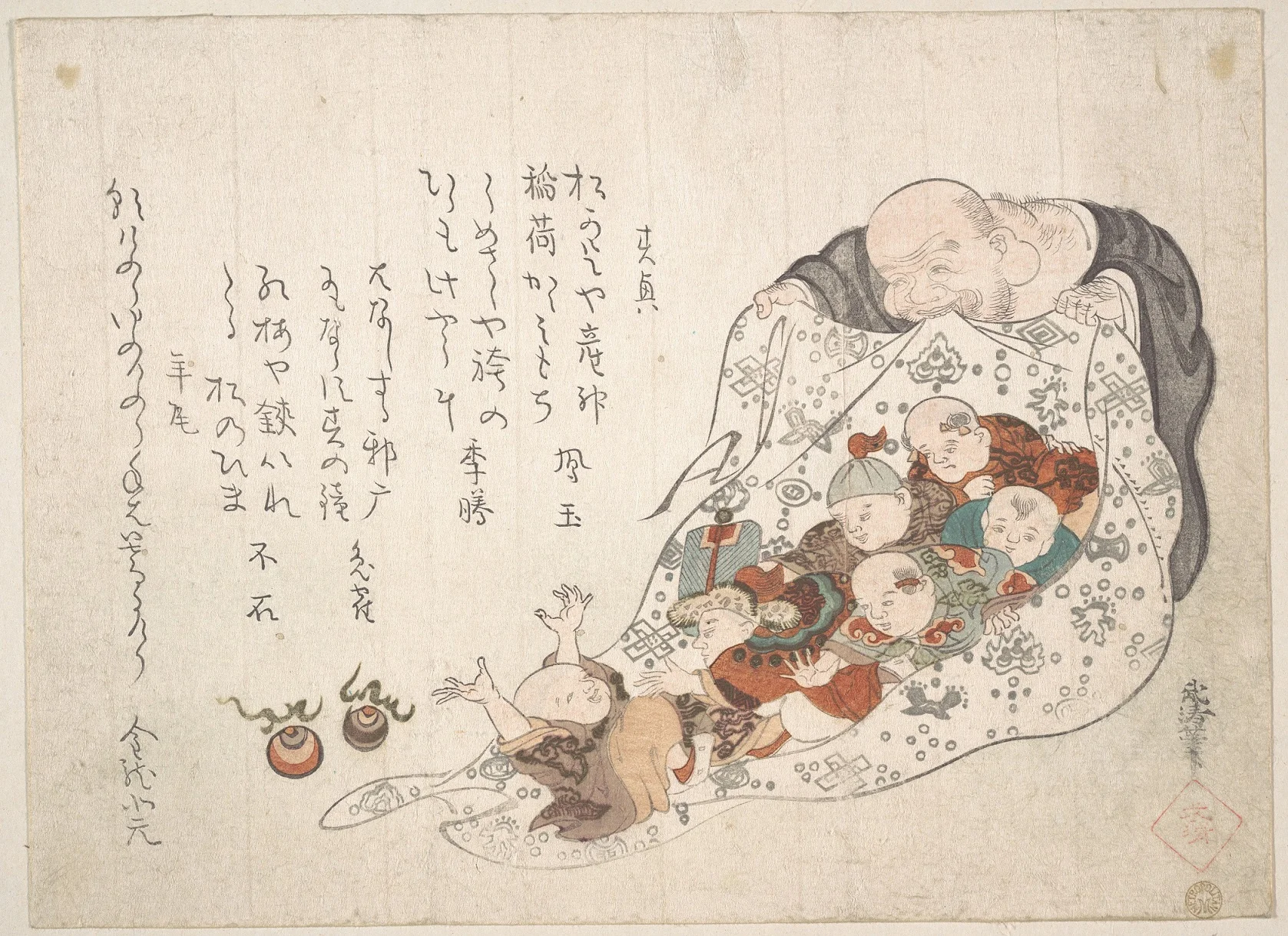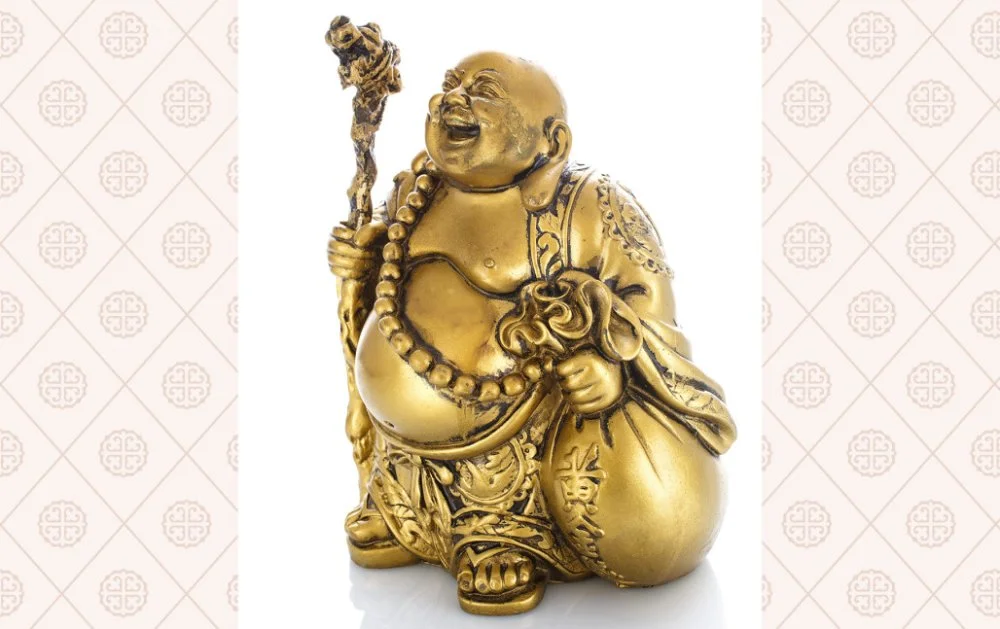The Myth of Happiness in a Bag
About the sacredness of gifts

Hotei opening his bag which is full of Small boys / Getty Images
In a ritual that has existed for time immemorial, when a person comes home and starts unpacking their shopping bags, both children and adults experience a slight nervous excitement at the sight of all of the new goodies being extracted from the depths of the bag.
The same excitement surrounds the arrival of Father Frost, Turakhon grandfathers, and other bearers of happiness in a sack on their backs. A hidden gift, extracted as a reward from a sack, is a very ancient image that is familiar to every culture, to every way of life. It is no wonder that it has found a reflection in the myths of many different nations.
The world, piecemeal extracted by its creator from an enormous bag, is encountered in Australian, Japanese, and North American origin myths. For the Australians, the bag is made of leather; for the Chinese, it's made of hemp; for the peoples of northern Europe, it can be made of birch bark.
The Japanese god of happiness, Hotei, is unimaginable without his enormous bag, from which he generously showers life's blessings upon his worshippers. Indeed, the very name of this god was derived from the Japanese word for 'cloth bag'.

Hotei Statuette / Alamy
Depictions of the Mesopotamian Anunnaki, who are chthonian gods and spirits of the earth, often show them holding bags, which archaeologists traditionally refer to as ‘divine purses’. From these bags, the Anunnaki extract everything that the universe requires to function successfully. Similar bags are frequently found in the depictions of Aztec and Mayan gods as well.

The Assyrian god holds a "divine purse" in his hand / Alamy
In Slavic culture, the portrayal of the bear god, considered the shared ancestor and world creator, frequently incorporates a bast bark box carried by the bear. Over time, this myth evolved into the well-known fairy tale that cautions: ‘Don't rest on that stump; don't eat my pie.’
Sometimes, tricksters tried to get their hands on those divine bags, pulling out things that were meant to stay inside with their mischievous little hands, a perfect explanation of the word ‘imperfections’ for our ancestors. The God-Creator, of course, intended to make the world perfect and wouldn't have allowed all sorts of troubles, such as hurricanes, earthquakes, and wars. It was our human ancestor who disrupted the intended perfection.
Pandora, that curious woman from Greek mythology, embodies the classic trickster. She pried open the box sealed by the gods, unleashing misfortunes that had been confined within. Since then, Pandora's box has become a universal metaphor for the most unpleasant consequences of any ill-considered actions.

John William Waterhouse. Pandora / Wikimedia Commons
However, the mischief of tricksters can sometimes yield positive outcomes. Thus, as the Kazakh myth of Aldar Kose recounts: ‘The Creator crafted the world, bestowing upon all the people lofty mountains, lakes, flowing rivers, and lush forests. Yet, the Kazakhs found themselves with an empty steppe. While its beauty was undeniable, the absence of forests, lakes, and mountains left them disheartened. Seeking to rectify this, Aldar Kose ventured to visit the Creator, pleading for just one mountain for his people. The Creator opened his huge bag and pulled out Karatau Mountains for him. However, Aldar Kose cleverly noted which side of the bag those mountains came from and slyly poked a hole in the bag in that place. Through this hole, lakes, rivers, forests, fish, and wild animals fell onto the barren steppe here and there. The exquisite Lake Burabay fell out onto the Kazakh lands last.’

Lake Burabay, Kazakhstan / Alamy



